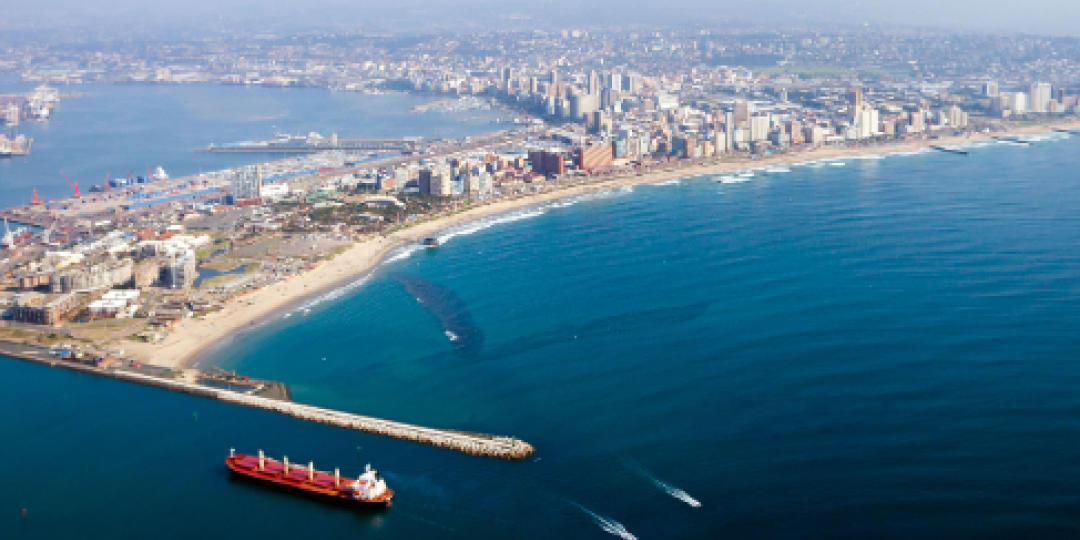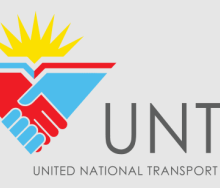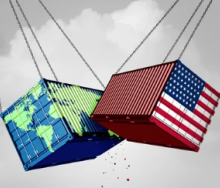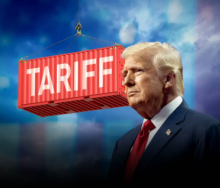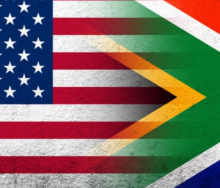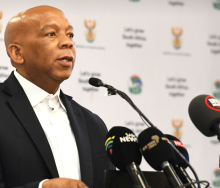South Africa’s state-owned logistics provider has dug in its heels over the privatisation stand-off emanating from AP Moller Terminals’ legal challenge against Transnet’s awarding of a tender to International Container Terminals Services (ICTSI) to run Durban’s Pier 2 container facility.
Approached for comment following a drubbing its legal team received in the Durban High Court, the parastatal’s executive refused to add fresh perspective, electing instead to say it remained committed to what it had decided – awarding the tender to ICTSI.
Transnet’s senior executive spokesperson, Ayanda Shezi, said Transnet CEO Michelle Phillips did not want to do any interviews while the court process was under way.
Asked if there was any indication when Judge Rob Mosop would rule on the matter, Shezi said the country’s freight industry would “know in the next few days” what was happening with the much-anticipated involvement of ICTSI at Durban Container Terminal.
Industry, though, fears that, given a report in the most recent Sunday Times, the ICTSI deal is on shaky ground, especially after Judge Mosop grilled Nick Ferreira, Transnet’s legal representative.
At issue is the contention by APM Terminals, a division of Maersk’s holding company, “that ICTI’s bid should have been disqualified because its solvency ratio of 0.24 fell short of Transnet’s solvency ratio requirement of 0.4 as set out in the port and rail operator’s request for quotations (RFQ).
The report in the business section added that “solvency ratios help indicate whether a company will have adequate cash flow to meet its financial obligations over the contract term.”
Business Times wrote: “According to Transnet’s RFQ, a respondent is deemed to have sufficient “financial capacity” when its solvency is equal to or exceeds 0.4 when calculated according to a formula where total equity is used as a numerator and total assets as a denominator.”
The report added that Ferreira said “that as part of meeting the minimum financial criteria, Transnet wanted bidders to demonstrate they had sufficient financial capacity to attract the required funding for the envisaged investments in DCT2.
“He said Transnet relied on additional considerations including balance sheet, going concern, and cash in the bag.
“We contend in our heads of argument that if you comply with these financial requirements that is sufficient but not necessary to establish if you have financial capacity. In other words, you can jump through the financial capacity hoop, you have solvency, liquidity and earnings before interest, taxes, depreciation and amortisation requirements and guarantee that you are in if you comply, but you do not have to comply with all of them.”
Mosop then asked: “Where does it say that?”
Ferreira replied: “It does not say that.”
Business Times added that “Ferreira said bidders would qualify provided they could demonstrate that they had the financial capacity and the finances necessary to satisfy the contract.
“But Mosop asked: ‘How would anyone know that from reading the tender documents? How would anyone know that from the wording? How would anyone sitting there know I don’t have to answer those questions as long as I’ve got letters from my bank or whoever? How would anyone know?’”
This week a private-sector freight executive who has long bemoaned the state of Durban port’s often parlous performance capacity, be it through poor productivity levels or equipment breakdowns, said there was a tangible concern among industry representatives over the ICTSI matter.
Asked to remain anonymous, fearing a backlash from port officials, the source said: “The judge’s grilling of Transnet’s attorney created the impression that they didn’t do they homework.
“It is understood that all APM (Terminals) has to do is prove that the tender process wasn’t fair for the privatisation of Pier 2 to be stopped before it even began. It will set the entire process back by months.”
The source said there was real concern about what this all might mean for a port that was already costing the country’s logistics sector dearly, but Transnet should get its house in order.
“Privatisation has been lobbied for long enough. One would imagine they crossed all the Ts and dotted the Is.”
In a previous conversation with Freight News about APM Terminals’ court challenge, Phillips said: “We believe that we have done things correctly, but if a court decides that it’s not the case then we’re back to square one. But if the court decides everything is fine then we’ll proceed.”
At the time she said: “APM Terminals obviously strongly believes in its own reasons for delaying the private sector participation process.
“We have a cash-constraints business and we have gone to the market to get cash into the business. That’s what DCT intended to do, and in doing that, the intention is to bring in the private sector and enable improvement in our business.”
